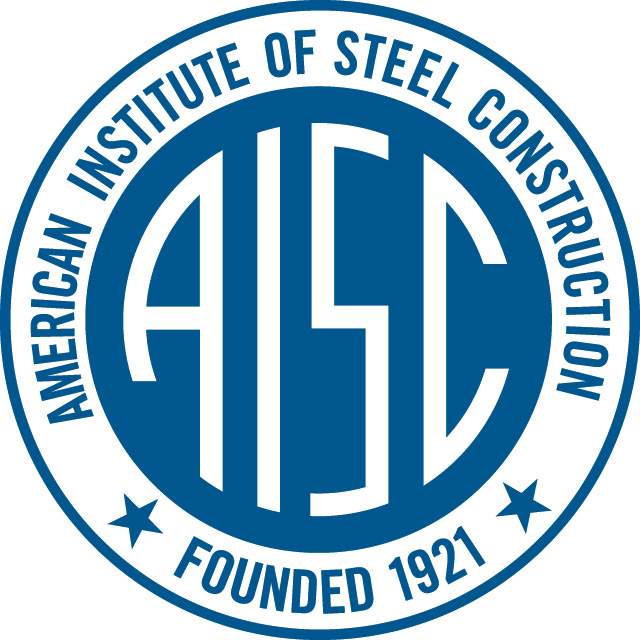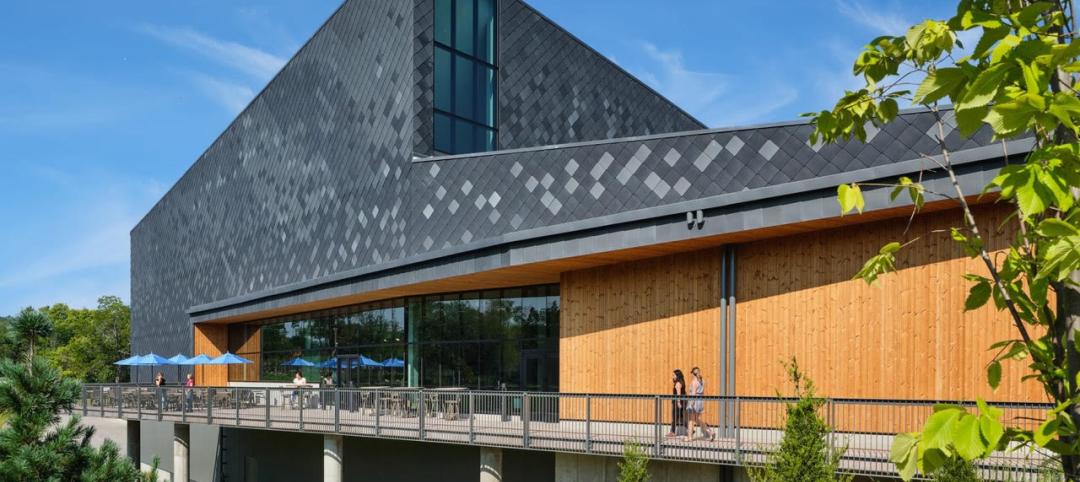For the second consecutive year, NASCC: The Steel Conference provides a glimpse into the future of technology in steel construction with the Technology in Steel Construction Conference (TSCC). This special track features nine informative sessions that focus on advanced technology use throughout the steel construction industry, from various topics on building information modeling (BIM) to interoperability.
TSCC sessions are part of the more than 100 top-notch educational sessions being offered at The Steel Conference in St. Louis, April 17-19 at America's Center Convention Complex. Admittance to all TSCC sessions is included with conference registration. To register or view an advance program, visit www.aisc.org/nascc.
Here's a look at this year's TSCC sessions for steel design and construction professionals:
T1: Leveraging Technology to Improve Project Communication (Wednesday, 3:15 p.m. — 4:15 p.m.) — How do you convey information clearly and succinctly and ensure it is understood by others? How do you know you are interpreting the information you receive correctly? This session, aimed at all roles within the structural steel industry, will discuss how to use the technology you already have, or have easily accessible, to improve communication within the project team and your own organization. Various technologies will be examined, from tools for building and reviewing BIM models and drawings, to web-based software designed to accommodate virtual meetings, to free tools to help you share files and stay mobile.
T2: IFC - Interoperability for Construction? A Practical Take for the Steel Industry (Wednesday, 4:30 p.m. — 6 p.m.) — IFC does not stand for Interoperability for Construction; but it could! It's actually an acronym for buildingSMART's Industry Foundation Classes, an industry-wide open standard that is gaining traction in the construction industry, as it offers a promise unmatched by previous standards: that a single standard can be used across various trades and professions in the industry. This session will explain why AISC adopted IFC at the core of its interoperability strategy and examine the nuances of IFC files, dispelling some myths and perceptions along the way. In addition, the session will take a look at the progress being made toward actual IFC exchanges in the structural steel industry.
T3: Risk and Model Hand-Offs (Thursday, 8 a.m. — 9:30 a.m.) — In this session, you'll learn how to address risk and model hand-offs and the challenges of working with design and construction models. The discussion will also consider the new AIA BIM Protocol Exhibit 202 that defines the Level of Detail (LOD) in models on a scale of 100 to 500. These LOD concepts will then be demonstrated with case studies on projects in three different phases: design, construction and facilities management (FM).
T4: Next Generation Approval: Using BIM for the Shop Drawing Review and Approval Process (Thursday, 10 a.m. — 11:30 a.m.) — BIM models hold tremendous potential, yet they are often underused beyond the visualization and coordination stages. This session will introduce you to three pioneering companies that are taking models to the next level by using them in the review process in concert with, or even in lieu of, traditional shop drawings. Speakers will discuss various methodologies and benefits they've experienced using model review.
T5: Bridging the Gap from Design to Fabrication (Thursday, 1:15 p.m. — 2:15 p.m.) — Do you still use traditional PDF drawings? You may be running the risk of inefficiencies and opportunities for mistakes. In the new and evolving world of BIM, more designers are creating 3D models that contain an immense amount of information that can be easily accessed by steel detailers, who have the opportunity to incorporate lean processes in their workflow -- benefiting the bottom line for the entire project team. In this session, you'll hear about the steel detailing challenges, successes and lessons learned from a major healthcare project related to the structural design model and project team coordination, and how to apply these to your own projects.
T6: The True Benefit of BIM for the Structural Engineer and the Pivotal Role They Play in the BIM Process (Thursday, 3 p.m. — 4 p.m.) — Do you typically use software packages for your own domain and find that it can sometimes be a bottleneck in the BIM process? Structural engineers and designers will often use their own BIM models for design, but, for most projects, the construction documents will be produced as drawings for the steel detailer/fabricator, who then interprets the drawings for building their own BIM models for fabrication purposes. This session will examine and discuss various topics related to improving workflow both within the structural engineering office and as it pertains to sharing models with steel detailers.
T7: What Does it Mean to Be a BIM Coordinator? (Thursday, 4:15 p.m. — 5:15 p.m.) — This session will delve into the role and requirements of a 3D/4D BIM coordinator and provide objectives from the perspectives of a steel detailer and general contractor. The purposes and goals of a BIM Contract will be reviewed, as well as the expectations of each project stakeholder. The session will also examine the different BIM platforms each party uses and the benefits of identifying discrepancies earlier in the design and detailing process.
T8: Steel Procurement in the 21st Century: Current Best Practices and Future Possibilities (Friday, 8 a.m. — 9:30 a.m.) — In today's brave new technological world, paper, faxes and basic spreadsheets still dominate the world of steel procurement. This session will offer practical ways to take advantage of the technology you already own, or have easily accessible, to improve the procurement process, which will be investigated in four primary areas: Inventory availability; Request for Quotation (RFQ); order placement; and order status/delivery. It will also discuss promising future initiatives and opportunities in this area.
T9: Laser Scanning and Steel Construction (Friday, 10 a.m. — 11:30 a.m.) — In this session you'll gain a solid foundation in using laser scanning for your projects, including how to budget and specify laser scanning work. The presentation will also provide practical examples of how laser scanning is adding value, accelerating schedules, and improving quality and safety for steel projects.
More information on this year's TSCC sessions at The Steel Conference can be found in the Advance Program (pages 29-31). For more information about the conference, visit www.aisc.org/nascc.
About the American Institute of Steel Construction
The American Institute of Steel Construction, headquartered in Chicago, is a not-for-profit technical institute and trade association established in 1921 to serve the structural steel design community and construction industry. AISC's mission is to make structural steel the material of choice by being the leader in structural steel-related technical and market-building activities, including: specification and code development, research, education, technical assistance, quality certification, standardization, and market development. AISC has a long tradition of service to the steel construction industry of providing timely and reliable information.
Related Stories
Affordable Housing | Apr 1, 2024
Chicago voters nix ‘mansion tax’ to fund efforts to reduce homelessness
Chicago voters in March rejected a proposed “mansion tax” that would have funded efforts to reduce homelessness in the city.
Office Buildings | Mar 27, 2024
A new Singapore office campus inaugurates the Jurong Innovation District, a business park located in a tropical rainforest
Surbana Jurong, an urban, infrastructure and managed services consulting firm, recently opened its new headquarters in Singapore. Surbana Jurong Campus inaugurates the Jurong Innovation District, a business park set in a tropical rainforest.
Cultural Facilities | Mar 27, 2024
Kansas City’s new Sobela Ocean Aquarium home to nearly 8,000 animals in 34 habitats
Kansas City’s new Sobela Ocean Aquarium is a world-class facility home to nearly 8,000 animals in 34 habitats ranging from small tanks to a giant 400,000-gallon shark tank.
Cultural Facilities | Mar 26, 2024
Renovation restores century-old Brooklyn Paramount Theater to its original use
The renovation of the iconic Brooklyn Paramount Theater restored the building to its original purpose as a movie theater and music performance venue. Long Island University had acquired the venue in the 1960s and repurposed it as the school’s basketball court.
Green | Mar 25, 2024
Zero-carbon multifamily development designed for transactive energy
Living EmPower House, which is set to be the first zero-carbon, replicable, and equitable multifamily development designed for transactive energy, recently was awarded a $9 million Next EPIC Grant Construction Loan from the State of California.
Museums | Mar 25, 2024
Chrysler Museum of Art’s newly expanded Perry Glass Studio will display the art of glassmaking
In Norfolk, Va., the Chrysler Museum of Art’s Perry Glass Studio, an educational facility for glassmaking, will open a new addition in May. That will be followed by a renovation of the existing building scheduled for completion in December.
Sustainability | Mar 21, 2024
World’s first TRUE-certified building project completed in California
GENESIS Marina, an expansive laboratory and office campus in Brisbane, Calif., is the world’s first Total Resource Use and Efficiency (TRUE)-certified construction endeavor. The certification recognizes projects that achieve outstanding levels of resource efficiency through waste reduction, reuse, and recycling practices.
Office Buildings | Mar 21, 2024
Corporate carbon reduction pledges will have big impact on office market
Corporate carbon reduction commitments will have a significant impact on office leasing over the next few years. Businesses that have pledged to reduce their organization’s impact on climate change must ensure their next lease allows them to show material progress on their goals, according to a report by JLL.
Adaptive Reuse | Mar 21, 2024
Massachusetts launches program to spur office-to-residential conversions statewide
Massachusetts Gov. Maura Healey recently launched a program to help cities across the state identify underused office buildings that are best suited for residential conversions.
Legislation | Mar 21, 2024
Bill would mandate solar panels on public buildings in New York City
A recently introduced bill in the New York City Council would mandate solar panel installations on the roofs of all city-owned buildings. The legislation would require 100 MW of solar photovoltaic systems be installed on public buildings by the end of 2025.

















